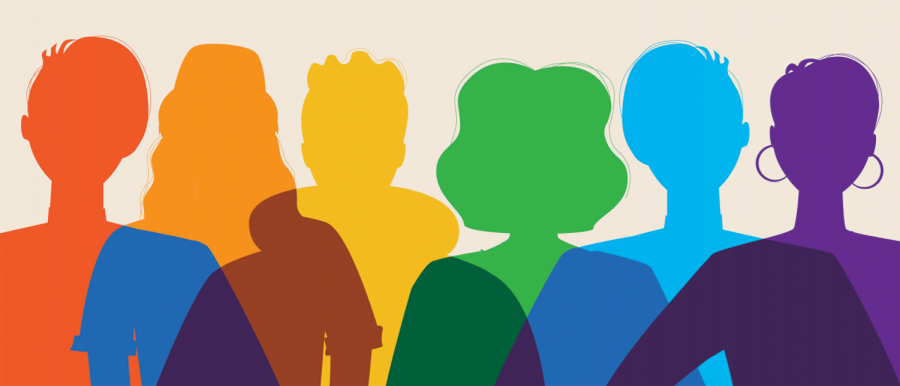Panelists offer resources to LGBTQ students
The Gay-Straight Alliance, a student club, hosted an online panel about resources for LGBTQ students this week.
October 15, 2021
LGBTQ students whose families reject them or who feel marginalized after coming out can tap into campus and community resources for help, panelists said at an online event on Thursday.
“We know that family rejection is a big deal,” said Kate Bishop, an education coordinator at Chase Brexton Heath Care, which serves the LGBTQ community. She said social workers there can help students in need find housing and food and “get … their basic needs met.”
“Family rejection is something that really makes people wonder if they still need to be here,” Bishop said at the event, hosted by the Gay-Straight Alliance, a student club, as part of AACC’s observance of Coming Out Week. “If the people that taught you how to be a person feel like you’re fundamentally messing it up, that’s hard to come back from, and a lot of people are experiencing that.”
According to Bishop, many queer people—especially those who are trans—feel “doomed,” under pressure and sometimes suicidal.
About 25% of LGBTQ people leave home because of a conflict around their gender identity or sexual orientation, she said. Almost half of homeless young people are LGBTQ folks, she added.
Other organizations with resources for queer youth include Baltimore’s peer-led support group, Hearts and Ears, The Trevor Project, specializing in suicide prevention for people younger than 25 or LGBTQ, and The Pride Center of Maryland, which has a clothing closet and counselors and performs tests for sexually transmitted infections.
Other organizations with presentations at Thursday’s event included Youth Empowered Society, which assists homeless youth, Trans Maryland, which helps with name and gender marker changes, Planned Parenthood, which offers hormone therapy, and Freestate Justice, a legal advocacy organization.
AACC also has resources for LGBTQ students with mental or physical health issues.
Three licensed counselors offer free, confidential sessions for registered students and can help them find off-campus therapists if they need long-term care.
Letha Valiaveedu, a counselor with the college’s Counseling Services, said she and her colleagues can help students improve self-care and wellness, cope with grief and disabilities, and work on communication and relationship skills, self-esteem and self-awareness issues, and self-defeating behaviors.
They also help those who are exploring sexual and gender identity concerns.
GSA secretary and second-year communications student Grace Bourne said she wasn’t aware of the “broad spectrum of what’s available out there for different people.”
Nick Barrett, GSA’s vice president, agreed.
“Whatever someone’s experience is, there’s a resource out there for them,” Barrett, a third-year criminal justice student, said. “The more we talk about the resources, the more people will [take action]. That will help more people in our community, and hopefully that will decrease [the suicide rate] because that is a serious problem.”












